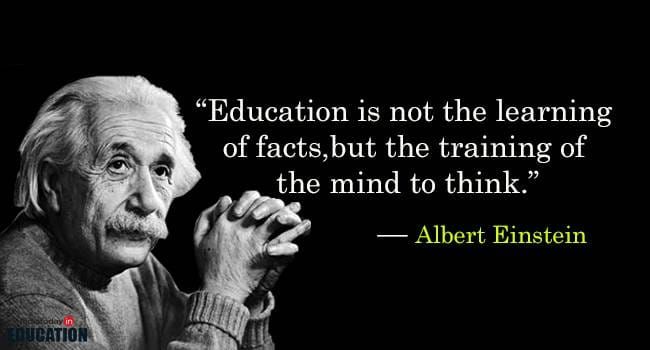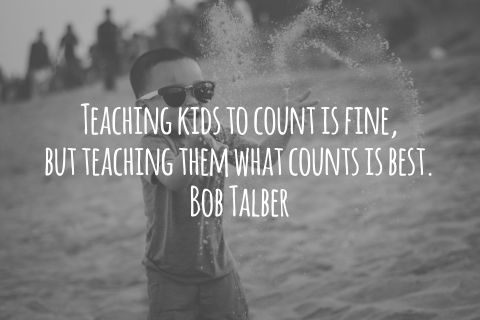Education Today: Where Are We Going Wrong?
Jul 22, 2019 • 32 views
Mitochondrion is the powerhouse of the cell.
We’ve all learnt this in school. But what we didn’t pass out of tenth grade knowing is this: How does internet banking work? How do you pay your taxes? How to change a flat tyre? How to troubleshoot a dysfunctional computer?
I as a student have found myself facing several such questions that I wasn’t taught the answers to back in school. We’ve learnt things ranging from sound propagation in physics to stoichiometric reactions in chemistry to structure of an arthropod in biology to (a + b) 2 = a2 + b2 + 2ab in mathematics. Truth be told, knowing all these things has helped me in ways more than one. But when it came to ineluctable problems like finding myself in the middle of a deserted road at night with a broken-down car, I realized I had no idea what to do. Why? Because nobody taught me that. Moreover, it was never emphasized that knowing that was incumbent.
This is where the loophole of our education system lies. We’re knowledgeable, but unfamiliar with basic knowledge.
We’re taught what’s important, not what’s necessary.
We’re smart, not street-smart.
The Oxford Dictionary defines education as the process of receiving or giving systematic instruction, especially at a school or university. It also has a second definition for the same: an enlightening experience. Oddly enough, the latter is seldom the cynosure of the current system.
School is perceived as a hassle; homework a burden; curriculum uninteresting and teachers dreary. Our institution at its fons et origo is flawed because of the non-practicality of major subjective theories.
Why is this happening? Why is the system not as efficient and coherent as it is expected to be?
There are various reasons behind this- be it insufficient funding for educational centers, scant regard for the importance of edification amongst most rural societies, inadequate awareness and guidance for students, lack of erudite teachers, or on a broader scale, even poverty- all contribute to the attenuation of the quality of education.
But most importantly, the paramount cause is the kind of learning structure that’s been incubated in terms of the syllabus, the curriculum, the text modules and the examinations.
The teaching-learning objectives are predefined and rigidly structured and, most times, fail to keep up with the progressing technologies and trends. This results in development of an out-of-date skill set in the student instead of a contemporary caliber. Another noteworthy factor is that, contrary to older times, the present generation has unlimited resources but a relatively flat course that slightly uses them as it barely touches the surface, leaving most learners oblivious to the depths of the topics. Students don’t step out of their standard zones of cognizance because their conceptual horizons are narrowed down, owing to the monotonous classroom-confined methods.
More often than not, the discussions are unidirectional as they happen to be teacher-driven, and the chain of thought descends from the teacher to the students, which makes the discourse biased under one person’s influence. By virtue of this, the assessments are extrinsic (evaluations are conducted by teacher and not a student himself), resulting in pupil finding themselves competing with others and not them. Milestones of advancement are marked by the best of the lot as contrasted with the class individuals, unheedingly victimizing them for “not being good enough”. Furthermore, conventional education stresses on meeting the stipulated deadlines instead of letting each student have a self-paced growth.

In the words of Martin Luther King Jr., “The function of education is to teach one to think intensively and to think critically. Intelligence plus character - that is the goal of true education.” The fundamental cornerstone of strong education lies in the real-life applicability of concepts learnt and relevance of core subjects to the day-to-day problems encountered. In order to achieve a high efficacy, the educational system should be more vivid in terms of topical divergence and should be a flexible mould that changes shape so as to accommodate each individual’s strengths and aptitude to deliver the best to each learner.
School should be a playground for children to have fun and explore. The need of the hour is to have an engaging learning experience that fosters all-round development of the pupil, reflecting the larger society, culturally, socially and intellectually. Education should be a liberating, unconstrained tool for evolution, which enlarges the learning horizons instead of curbing them. When students walk out of school, they need to know how the world in its ordinary face works. Because if one knows how to survive the everyday hurdles, one knows how to survive the biggest ones too. After all, true education is not knowing everything- every resource, every answer, every bit of information- inside out; it is knowing how to access everything that is required.
Education should get as real as life does, as practical as problems do, and as relevant as their solutions do.

